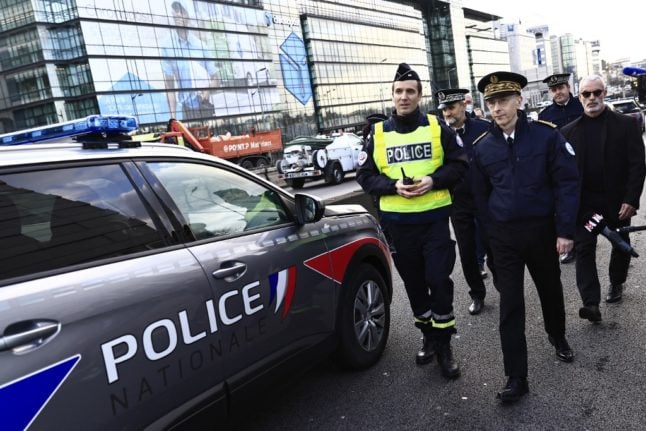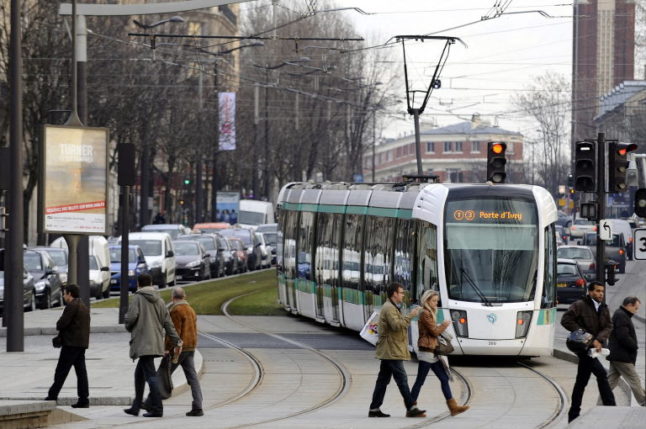“It is obviously a failure,” Didier Lallement told a commission investigating the fiasco at the French Senate. “It was a failure because people were pushed around and attacked. It’s a failure because the image of the country was tarnished.”
Lallement and Interior Minister Gerald Darmanin have been under severe pressure since the May 28 match after they initially blamed the chaos on as many as 40,000 Liverpool fans who massed at the stadium without tickets or with counterfeit tickets.
‘Perhaps I made a mistake with the figure’
That figure has been widely disputed since by witnesses and media using images from the ground, leading Lallement to face repeated questions from senators who grew frustrated at his responses.
“Perhaps I made a mistake with the figure I gave to the minister,” he said, saying he had based his estimate on the numbers of people using public transport and from feedback from officers on site. “I never claimed that it was absolutely accurate,” adding that “the figure was not based on scientific evidence”.
He admitted there were not 30,000 to 40,000 “at the gates of the stadium” but maintained that several thousands were “in the vicinity” of police checkpoints at the Stade de France to the north of the capital.
Many Liverpool supporters struggled to enter the stadium, leading to kick-off being delayed by more than half an hour and crushes at the entry gates, where police fired tear gas.
Fans also complained about bottlenecks leading to the stadium created by police deployments, but Lallement said the checkpoints were anti-terror measures “for a risk that is still real”.
The government’s initial decision to blame Liverpool fans for the problems caused tensions between France and Britain, while raising questions about the capacity of Paris to host the Rugby World Cup next year and the Olympic Games in 2024.
‘300 to 400 delinquents’
Lallement said he regretted having to authorise the use of tear gas to move supporters away from the stadium before the game, which affected mostly Liverpool fans including children and disabled people.
“I’m totally sorry on behalf of the police department, but there was unfortunately no other way,” he told senators, adding that the only other option was a baton-charge, which he ruled out as too dangerous.
“I would do the same thing again,” he said, saying that he believed his decisions had saved lives.
Asked about street crime outside the stadium, which many fans described as terrifying, Lallement estimated that there were 300 to 400 “delinquents” who robbed or physically assaulted people as they left the game, which Real Madrid won 1-0.
Deleted CCTV footage
Executives from the French Football Federation, which was responsible for organising the game, expressed their regrets for chaos they blamed on a strike on one of the train lines to the stadium, fake tickets and local gangs.
Speaking to senators, director general Florence Hardouin said 2,471 fake tickets had been detected at turnstiles — much higher than the average of around 300 for similar events in the past.
The federation also revealed that Stade de France CCTV footage from the ground had been automatically deleted — in line with French law that stipulates it must be destroyed within seven days unless it is subject to a warrant from judicial authorities.
The FFF’s Erwan Le Prevost told shocked senators that he had been watching the CCTV cameras all day at his post and described the images as “extremely violent”.
“We’re surprised,” the Senate commission’s co-president, Laurent Lafon, told AFP, adding that an investigation was opened the day after the game (to investigate the presence of fake tickets).
“There was plenty of time to request them (the images). We need to understand what happened.”
Out of everything I heard @Senat today, the part that has caused me great distress is that French authorities have failed to secure the CCTV from around the stadium.
I am perplexed at how this has been able to happen. https://t.co/8tbPGBugko
— Steve Rotheram (@MetroMayorSteve) June 9, 2022
He said the debacle at the stadium appeared to be “an accumulation of dysfunctions” linked to a “lack of preparation.”
Senator François-Noël Buffet described the missing CCTV images as “a serious problem” and promised to investigate the reasons why no authority had demanded the CCTV images within 7 days.
Paris police then tweeted out a clarification insisting they still had images in their possession that were available to any judicial investigation and people “shouldn’t get confused between images from the police and those of a private operator.”
Liverpool fans were ‘scapegoats’
Steve Rotheram, the mayor of the Liverpool city region who was at the game, also testified to the Senate on Thursday, calling the issue of fake tickets a “red herring”.
“People’s memories will forever be tarred by the lack of organisation and heavy-handed policing, and then of course the way authorities tried to deflect blame and scapegoat Liverpool fans for their incompetence,” he told AFP before the hearing.
He was a victim of pickpockets before the game, losing his phone, ticket and cards as he made his way to the stadium.
He accused France’s Interior Minister Gerald Darmanin of trying to “cheat the French public but also world’s media” by presenting a false version of events at the stadium.
France offered to host the game after it was stripped from Saint Petersburg in Russia in February by the European football body UEFA, following Moscow’s invasion of neighbouring Ukraine.



 Please whitelist us to continue reading.
Please whitelist us to continue reading.
Member comments